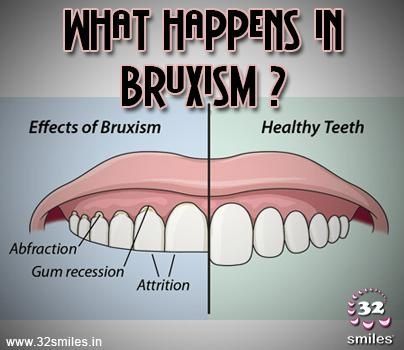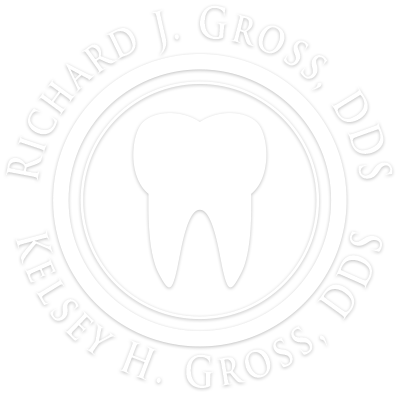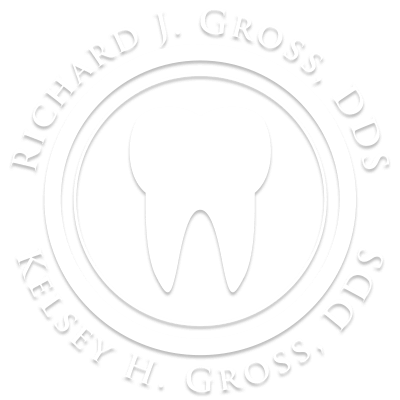What is Bruxism?

Bruxism is the grinding, clenching, and movement of the upper teeth against the lower teeth. Bruxism is considered a parafunctional habit, which means that it is unrelated to eating, drinking, chewing, or speaking. Most people grind or clench their teeth without even realizing it, especially when the are sleeping! Bruxism can impact your dental health in many ways, and although it may not be curable, there are ways we can reduce the amount of stress you put on your teeth day to day.
Clenching and grinding is a result of a number of different causes. Stress and anxiety are some of the most obvious and common causes for clenching and grinding the teeth together. Parafunctional movements such as clenching can relieve the tensions that stresses cause. Underlying airway issues can also manifest in the forms of clenching and grinding the teeth, especially in children. People who snore heavily or suffer from sleep apnea usually show signs of clenching and grinding on their teeth. Children and adults ADD or ADHD are also common bruxers and clenchers.
Extensive clenching, grinding, and “bruxing” can cause many issues to develop in the oral cavity and beyond. Some of the signs and symptoms include: jaw pain, recurring headaches, tooth pain, loose teeth, broken and fractured teeth, worn down enamel, flattened or dulled tooth surfaces, receding gums, jaw locking, pain near the ears (TMJ), and clicking or popping of the jaws.
How can we keep our teeth and gums healthy and avoid bruxing our teeth? One of the simplest and most effective ways to reduce clenching and grinding the teeth is to wear a custom nightguard. A nightguard, sometimes referred to as a bite plane, is a small plastic piece that usually fits over the upper teeth. The nightguard prevents the upper and lower teeth from contacting, and thus reduces the amount of forces we can put on our teeth at night. The masseter muscle is what controls the strength of the jaws, and sometimes patients can chew through a nightguard pretty quickly. In this case, Botox can be used to relax the jaw muscle and reduce the amount of forces we put on the teeth. Other simple solutions include stress reduction, eliminating chewing gum, doing jaw exercises, and pain management tactics.
If you are clenching and grinding your teeth, contact your dentist to find the right solution for you!

 Make an Appointment
Make an Appointment

